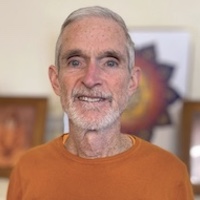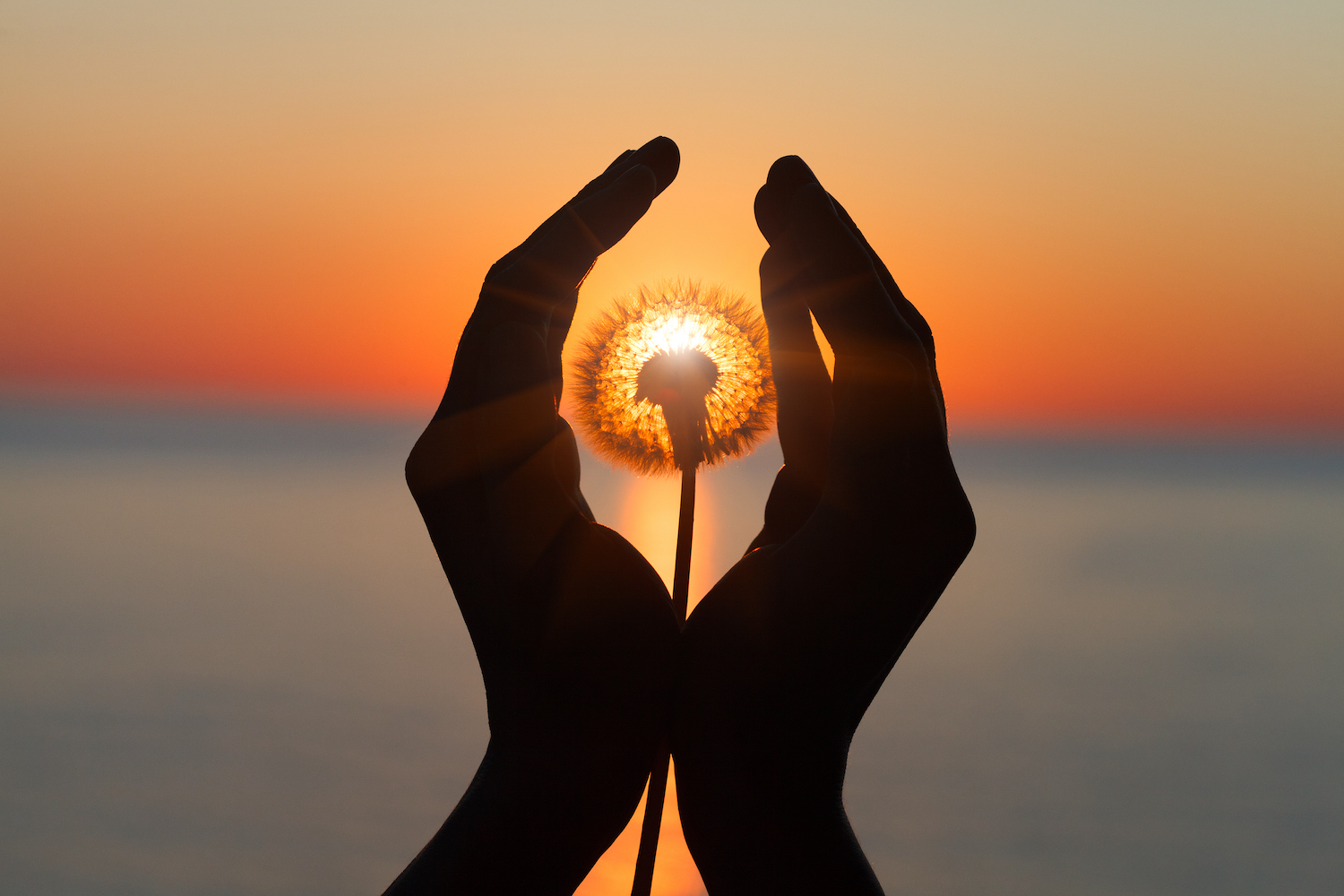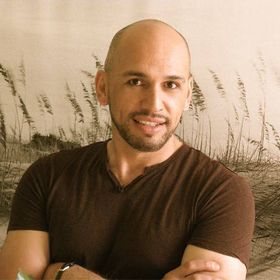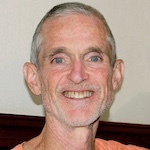Practice of the Month: Practice and Non-Attachment: A Two Pronged Approach to Liberation
by Swami Ramananda
If you want to see well through a window, you have to clean both sides. Practice (Abhyasa) and Non-Attachment (Vairagya) work much the same way. They are the complimentary practices given in Patanjali’s Yoga Sutras as a means to quiet the movement of thought in the mind so that we can experience our true nature — a source of unchanging peace within.
In order to see clearly, we must remove anything that would cloud or color our vision. Practice implies a steady effort to calm any thoughts, emotions or prejudices that might prevent clear, neutral perception. For example, if you shake a glass ball with imitation snowflakes inside, and then hold it still, the snowflakes will gradually settle, leaving an unobstructed view. We may think primarily of sitting meditation as a means to still the mind, but practice can include anything done with meditative focus or mindfulness, creating a steady flow of attention.
But only learning to calm the disturbances in the mind does not insure our vision stays clear since we are so often disturbed by the difficulties that we encounter in daily life. Non-attachment works perfectly as a compliment to practice by preventing disturbances from arising. While practice may be pursued by pausing from activity to meditate or quietly focus the mind, non-attachment is meant to help us relate in healthy ways to all the activity we engage in.
Non-attachment guides us to learn that we cannot depend on anything outside of ourselves for our peace of mind. Non-attachment towards our goals means not depending on the results for that peace. We work with less tension and more clarity when we are not anxious about the outcome. Non-attachment towards the things we enjoy simply means that we can remain at peace even when those things are not available to us. In relationships, we can love more freely if we are not afraid of losing someone’s love or approval.
These two approaches to creating and maintaining a clear and focused mind support each other perfectly. Any effort to develop non-attachment becomes much easier if we begin to experience a natural sense of internal contentment as a result of a regular practice. Feeling this innate peace within, we more readily let go of desires and expectations as the source of our happiness. And if we learn to let go of attachment to the results of our meditative practices, we can pursue them steadily without becoming discouraged or disappointed.
We can develop practice by meditating regularly with sincere effort and by performing any action with one-pointed attention. Non-attachment can be a little trickier to cultivate. If we look deeply into any situation that causes us to suffer, we can usually find that we are wanting something so much (recognition, admiration or some experience that we enjoy), that we become disturbed by not getting it. We unintentionally make our peace of mind dependent on acquiring or achieving something.
It can be difficult to observe and analyze our struggles with enough clarity and neutrality to see the underlying motives that give rise to suffering. Here again, practice compliments the effort to free ourselves from attachment by calming and strengthening the mind sufficiently to look deeply and objectively at our desires. When we are able to see clearly what we are holding onto in an unhealthy way, we then have the choice to let go.
These two elements of spiritual life empower us to free ourselves from the illusion that we can gain happiness by arranging the people and events around us make our lives happy. It is ultimately our choice. We can all gradually build the mental strength to focus our minds in selfless ways that align our behavior with the Cosmic Will and reveal the natural peace that has always been there.
You are invited to join Swami Ramananda and Zubin Goldman for Sunday Spiritual Talk: The Mystery of Death online and by donation on Sunday, November 17 at 11:00 am – 12:00 pm PST. Swami Ramananda is also leading Meditation Teacher Training starting November 14th, learn more and apply here.
 Swami Ramananda C-IAYT, E-RYT 500, is the Executive Director of the Integral Yoga Institute in San Francisco and a greatly respected senior teacher in the Integral Yoga tradition, who has been practicing Yoga for over 45 years. Ramananda offers practical methods of integrating the timeless teachings and practices of Yoga into daily life, and transforming the painful aspects of human experience into steps toward realizing one’s full potential.
Swami Ramananda C-IAYT, E-RYT 500, is the Executive Director of the Integral Yoga Institute in San Francisco and a greatly respected senior teacher in the Integral Yoga tradition, who has been practicing Yoga for over 45 years. Ramananda offers practical methods of integrating the timeless teachings and practices of Yoga into daily life, and transforming the painful aspects of human experience into steps toward realizing one’s full potential.
He leads all levels of Yoga teacher trainings and programs around the globe. Ramananda co-developed the Stress Management Teacher Training program and has trained many teachers to bring Yoga into corporate, hospital and medical settings. He a founding board member of Yoga Alliance and is a co-founder of The Spiritual Action Initiative which brings together individuals committed to working for social justice for all beings and for the care and healing of our natural world. His warmth, wisdom and sense of humor have endeared him to many.







